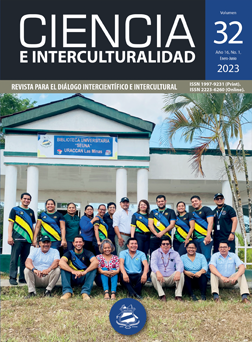Interculturality from pedagogical practice: toward better integration of Indigenous communities in the Colombian educational system
DOI:
https://doi.org/10.5377/rci.v32i01.16240Keywords:
critical interculturality, critical pedagogy, decolonizationAbstract
Within the framework of the crisis of positivism, which materialized during the 20th century with the failure of modernity and the arrival of postmodernity, different "turns" (giros en español) have emerged, such as the philosophical-linguistic one undertaken by Ludwig Wittgenstein and Richard Rorty, with wide ramifications reaching even, in recent years, to Bioethics with its own twist, the narrative or phenomenological-hermeneutic, and the strong theoretical influence of Paul Ricoeur. In recent decades, the so-called “decolonial turn” has also taken place, largely a consequence of the Modernity/Coloniality/Decoloniality project, which has involved an international and inter-university dialogue at the level of the North American and Latin American academy.
Within this new turn, we must situate the greatest theoretical advances around interculturality. In this essay, we propose to clarify from the theoretical and within the framework of the decolonial turn, these advances, which, however, do not yet correspond sufficiently in pedagogical practice. For this reason, we must continue our path, which involves retaking the advances of the decolonial turn to favor the final objective of the inclusion of ethnic minorities in terms of interculturality and from its critical aspect. To do this, we will rely on Catherine Walsh's approaches. Our conclusions underline that the shortcomings of the educational system are, ultimately, the reflection of the failure in terms of interculturality and even the space from which we must continue advancing toward the cultural decolonization of Latin America.
Downloads
294
HTML (Español (España)) 147
epub (Español (España)) 79
xml (Español (España)) 159
Resumen.mp3 (Español (España)) 96
Abstract.mp3 (Español (España)) 74
Downloads
Published
How to Cite
Issue
Section
License

This work is licensed under a Creative Commons Attribution-NonCommercial-NoDerivatives 4.0 International License.
Copyright © (URACCAN)

This journal is licensed under a Creative Commons Attribution-NonCommercial-NoDerivatives 4.0 International License.
This license allows others to download the works and share them with others, as long as their authorship is acknowledged, but they can not be changed in any way nor can they be used commercially.




